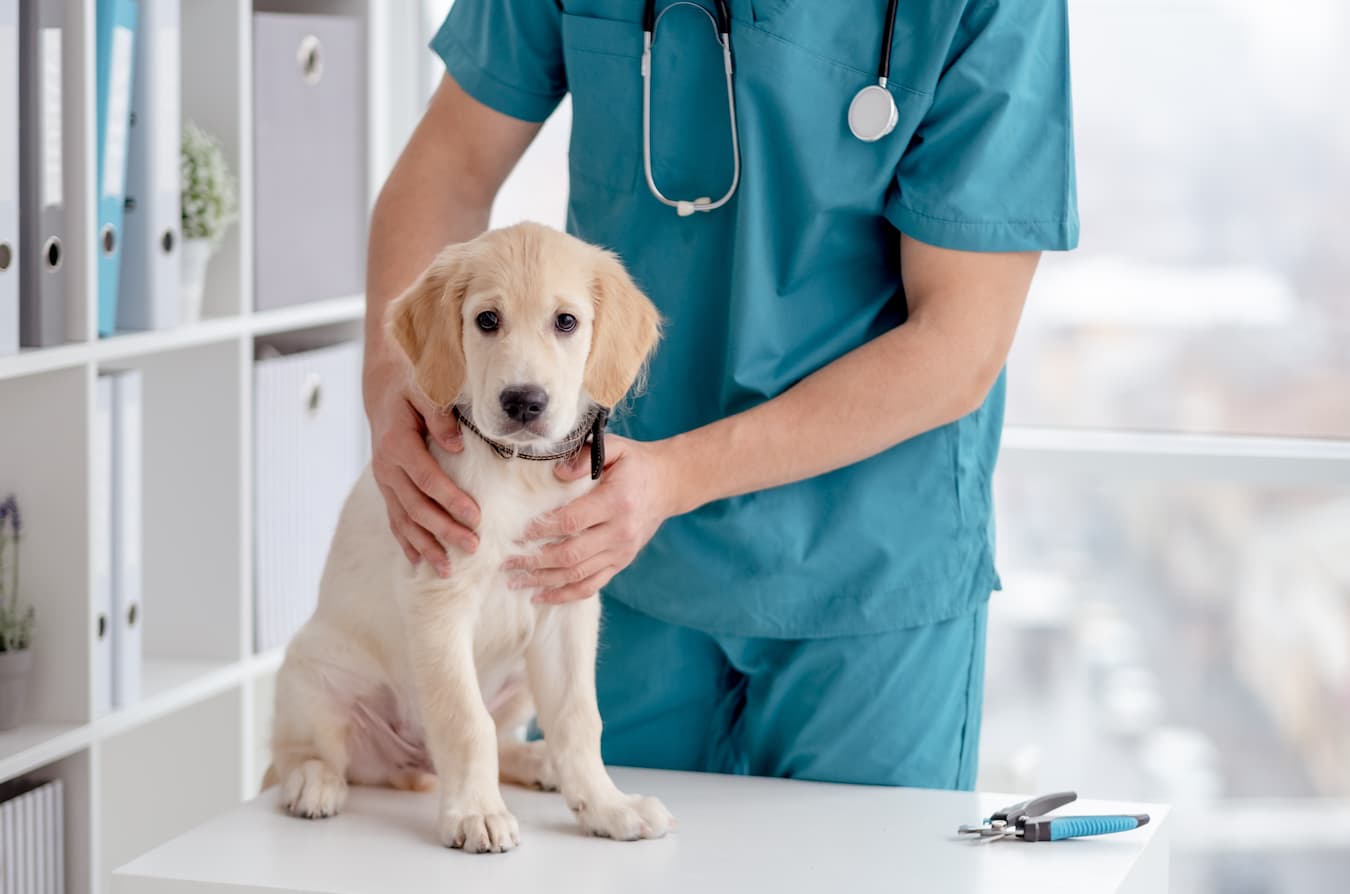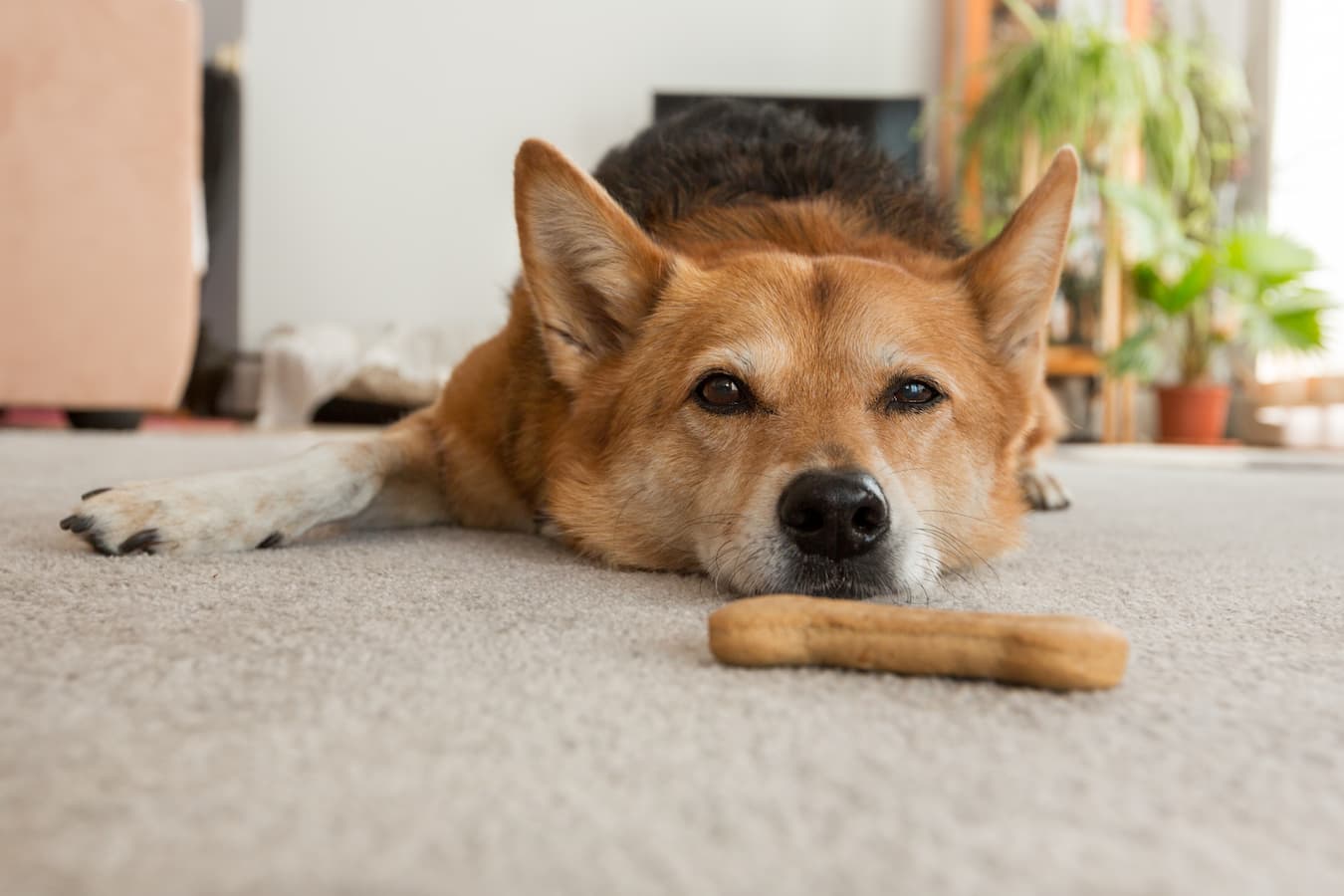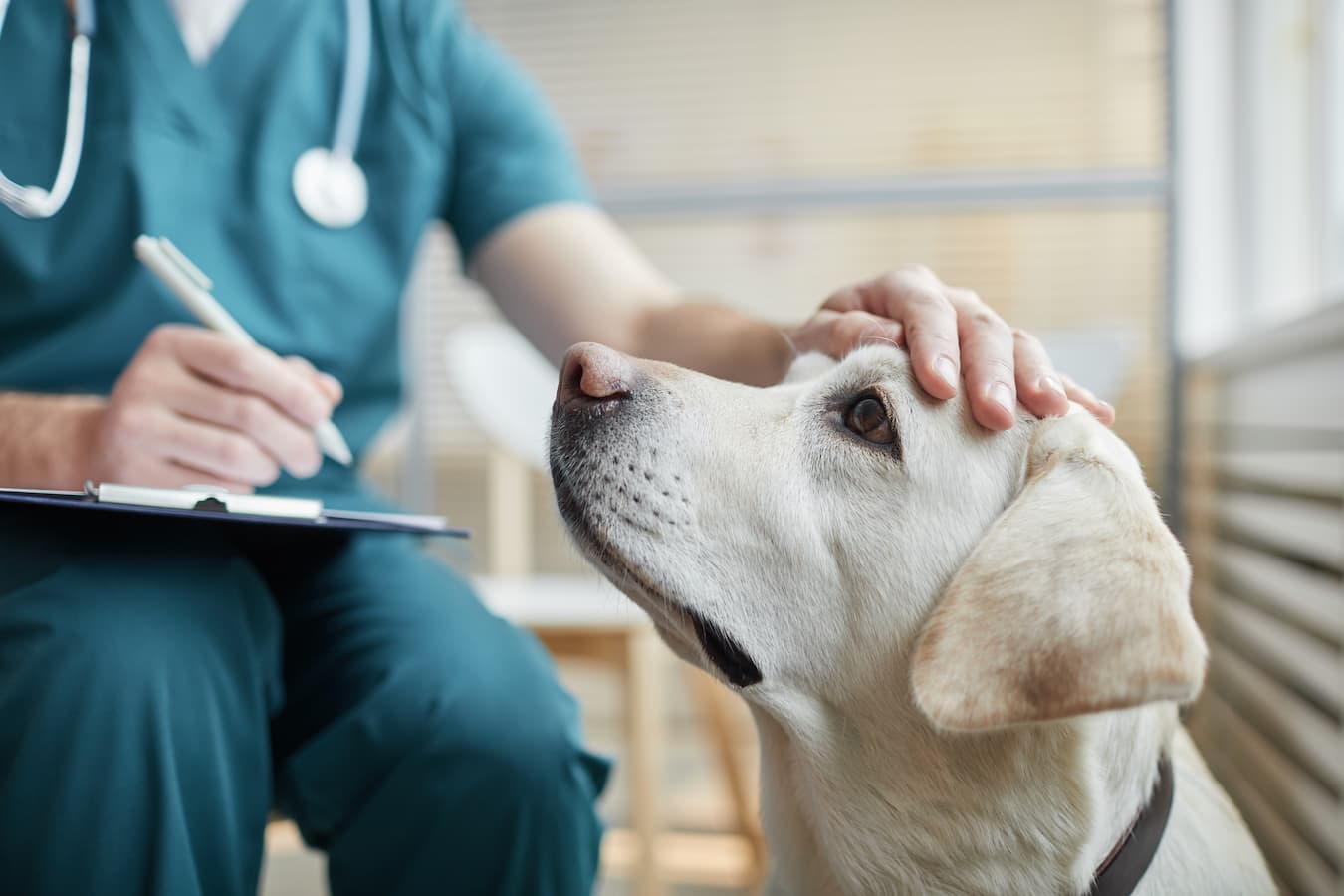Is that blood in your dog’s doo?! Your pup’s poo isn’t supposed to be bloody, right?
As a loving and doting pet parent, blood in your furry friend’s stool is a totally valid cause for concern. But why is it there in the first place?!
At a Glance
- If your four-legged friend is acting normally with only trace amounts of blood in their stool, it might not be much to worry about (we’d still recommend you go to the vet, however.)
- Bloody dog stool often is the result of an upset in the gastrointestinal tract or digestive system. It can be a symptom of a disease or underlying health condition, or it may happen due to a diet change.
- In the event of severe bloody diarrhea or vomiting, take your dog to the nearest veterinarian immediately.
Keep reading to learn more about why your canine companion is having bloody stools.
See Related: How To Calculate Your Dog’s Age & Convert To Human Years
If you have a puppy who is pooping blood, take them to the vet immediately. Parovirus is common in unvaccinated puppies, and can be fatal if untreated.
Help, There’s Blood in My Dog’s Poop!
You went to go scoop your dog’s fresh doo and noticed a bit of blood in their stool. What the heck?! That’s not normal, right?!
If you’re worried about finding bright red blood in your dog’s stool, you have a valid reason to be! This can often be a sign of a serious health problem. If you’ve recently discovered blood in your dog’s doo, it’s a good idea to call up your regular veterinarian as soon as you can.
#1. Assess Your Dog’s Overall Health
It isn’t always necessary to bring your dog in for a physical examination at the vet’s office. If your furry friend is acting like their normal self (as in, eating normally and behaving normally), your dog’s doc can typically give you advice over the phone.
However, bloody stool is sometimes a sign of something more serious. Other symptoms may present themselves in this case, such as a loss of appetite or vomiting.
If you notice that your furry friend is acting under the weather, it’s a good idea to take a trip to the vet’s office. If they are pooping blood or vomiting blood in large amounts, go to your nearest emergency vet right away.
#2. Assess Your Dog’s Stool
Before you head to the vet, it’s a good idea to closely investigate your canine companion’s blood stool. No matter how stinky it might be, providing your vet with a thorough description of your dog’s doo can help them make an accurate diagnosis.
There are two distinctive types of blood stool:
- Hematochezia: Bright red blood or fresh blood in your dog’s stool likely originated in the lower digestive tract or colon. It can be present in either firm stool or watery diarrhea and may be caused by medical conditions such as inflammatory bowel disease or colitis.
- Melena: Not all bloody stools are easily recognizable. If your dog’s poop is inky-black, tarry, and jelly-like, blood may have been digested, meaning it originated in the upper digestive tract.
- Non-Blood Substances: Keep in mind that ingesting red food or non-food objects may also lead to red-tinged poop and isn’t necessarily cause for alarm. Maybe your curious canine nibbled on your favorite lipstick or got their paws on some Pepto-Bismol.
Why Is My Dog Pooping Blood?
Scooping doggy doo is a routine enough task (unless you outsource this unpleasant task). But bloody stool is a quick cause for concern for many pet parents (as it should be!) So, why is it happening?!
Eating Something Bad or Switching to a New Food
Most of the time, bloody dog poop is caused by an upset in the digestive tract, which can take place anywhere in the stomach, intestinal tract, colon, or anal region. Certain conditions, like acute hemorrhagic diarrhea syndrome (AHDS) or hemorrhagic gastroenteritis, can cause inflammation in the gastrointestinal tract and bloody stool.
If your four-legged friend eats something they shouldn’t have (an act known as dietary indiscretion), such as garbage, spoiled food, or toxins, it can result in bloody diarrhea. This can also occur after dietary changes, like if you switch dog food brands.
Other times, bloody diarrhea or firm stool can be the result of intestinal blockages or post-surgery complications.
Health Conditions That Affect the GI Tract or Blood Clotting
Certain health conditions can affect either the digestive tract or blood clotting, both of which can lead to bloody stool in dogs. These issues or diseases include:
- Viral and bacterial infections
- Inflammatory bowel disease
- Parvovirus
- Stomach ulcers
- Intestinal parasites
- Dental disease
- Liver disease
- Liver cancer
- Kidney disease
- Pancreatitis
- Hormonal disorders
- Irritable bowel disease (IBD)
This list isn’t exhaustive, and there may be another underlying cause behind your dog’s bright red doo. Be sure to consult your veterinarian immediately if you suspect that there is something serious at play so that your furry friend can receive appropriate treatment.
Bonus: Why Is My Dog Shaking? 8 Common Causes And How To Help Them
Helping Your Dog Feel Better
After you’ve visited your local vet, you might return home with a tailored treatment plan that will help heal your four-legged friend. If you don’t, then there are a few things you can do at home to help ease their discomfort and soothe their inflamed intestines.
Here are a few things you can try, depending on the nature of your dog’s stool and overall health:
- Give no food or water for 24 as a rest period.
- Give a bland diet for 3 to 7 days following this rest period.
- Gradually reintroduce their normal diet.
- Monitor your dog for other symptoms. If this issue persists, a prescription hypoallergenic diet might be necessary.
- Potentially introduce food supplements like probiotics and prebiotics to encourage intestinal microflora and gut health.
And, as always, be sure to shower your canine companion with plenty of cuddles and love!
Final Thoughts
Discovering blood in your dog’s stool is always an immensely unnerving and vastly worrying experience. However, there’s no need to panic! With this blog in your back pocket, you’ll be able to better understand what to do when your dog’s doo turns into bloody poo.
Keep Reading: How Hot is Too Hot to Leave a Dog In a Car?
—
Scoop Masters offers professional dog waste removal services in California, Texas, Florida, and Tennessee. Since 1988, we’ve saved dog owners across the country from the overly unpleasant task of picking up after their pets. Each poopy project we complete gives them the freedom, convenience, and sanitation they deserve! Contact us for a free quote, or simply stock up on enough dog poop bags to keep your pet’s number twos at bay. To stay in the loop, follow up on Facebook and Twitter/X. If your dog can poop it, we can scoop it!






Trackbacks/Pingbacks